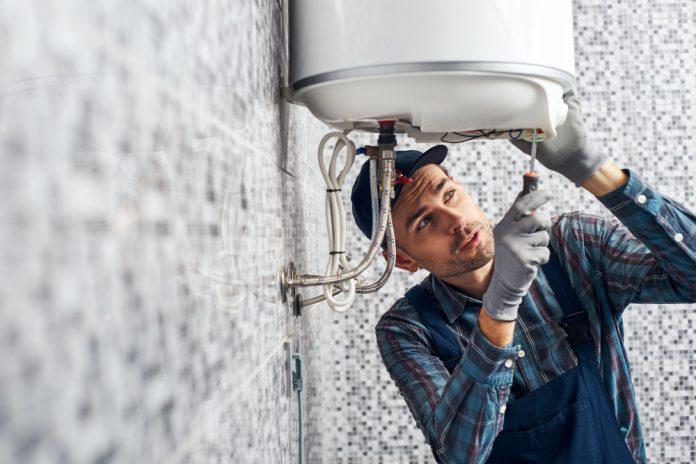Water heaters are an essential part of any household, providing hot water for bathing, washing clothes, and other purposes. However, for low-income households, the cost of purchasing and maintaining a water heater can be a significant financial burden. This is why free water heaters for low-income programs are crucial in providing much-needed relief to these households. In this article, we will discuss the importance of free water heaters for low-income programs, the different types of water heaters available, their energy efficiency, installation process, maintenance and repair, advantages, and the challenges faced by low-income households.
Low-income households struggle with high expenses related to utilities, including water heating. Many of these households cannot afford to purchase and maintain a water heater, leading to a reduced quality of life. This is where free water heaters for low-income programs come into play.
Explanation of the Need for Free Water Heaters for Low-Income Programs
Free water heaters for low-income programs are essential in providing basic necessities to those who cannot afford them. These programs aim to help households with limited income overcome financial obstacles and ensure that they have access to hot water without incurring significant expenses.
Definition of Low-Income Programs
Low-income programs refer to various assistance programs that offer financial aid, food, and housing to individuals and families who cannot afford them. These programs have income thresholds to determine eligibility, which varies depending on the state and locality.
Importance of Providing Free Water Heaters for Low-Income Households
Providing free water heaters for low-income households can help alleviate financial stress on these households. It can also improve the quality of life for these individuals and families by providing hot water, which is essential for daily activities such as bathing, cleaning, and cooking.
Background Information
Various government and non-profit organizations offer programs that provide free water heaters to low-income households. These programs have eligibility criteria that determine which households qualify for assistance.
Overview of Government Programs That Provide Free Water Heaters for Low-Income Households
Several government programs provide free water heaters to low-income households, such as the Low Income Home Energy Assistance Program (LIHEAP) and the Weatherization Assistance Program (WAP). These programs aim to help households with limited income reduce their energy costs and improve their overall living conditions.
Explanation of How These Programs Work
Government programs that provide free water heaters for low-income households work by offering financial assistance or direct installation of a water heater. These programs have specific eligibility criteria that determine who qualifies for assistance.
The Eligibility Criteria for These Programs
The eligibility criteria for government programs that provide free water heaters for low-income households vary by program. Generally, households must meet specific income thresholds, have a valid social security number, and reside in the state where the program is offered.
The Role of Non-Profit Organizations in Providing Free Water Heaters
Non-profit organizations also play a significant role in providing free water heaters to low-income households. These organizations often partner with government programs to increase the number of households they can assist. They also rely on donations from individuals and corporations to fund their programs.
Types of Water Heaters Available
Various types of water heaters are available for low-income households. Each type has its pros and cons, depending on the household’s needs.
Overview of the Types of Water Heaters Available for Low-Income Households
The most common types of water heaters available for low-income households are tankless, storage tank, and hybrid water heaters. Tankless water heaters provide hot water on demand and are ideal for households with low to moderate hot water usage. Storage tank water heaters store hot water in a tank and are suitable for households with high hot water usage. Hybrid water heaters combine tankless and storage tank technology to offer both energy efficiency
When it comes to water heaters, there are several options available for low-income households. These include:
1. Conventional storage tank water heaters: These are the most common types of water heaters, and they store hot water in a tank until it’s needed.
2. Tankless water heaters: These are also known as on-demand water heaters, and they heat water only when it’s needed. They are more energy-efficient than conventional storage tank water heaters.
3. Heat pump water heaters: These use electricity to move heat from the air or ground to heat water. They are more energy-efficient than conventional storage tank water heaters but may not be suitable for all climates.
4. Solar water heaters: These use energy from the sun to heat water. They are more expensive to install but can provide significant energy savings in the long run.
Each type of water heater has its own pros and cons, and the choice depends on several factors such as household size, hot water usage, and budget. It’s important to weigh the options carefully before making a decision.
Energy Efficiency
Energy efficiency is an important consideration when choosing a water heater. An energy-efficient water heater can help save money on energy bills and reduce greenhouse gas emissions. Low-income households may be particularly affected by high energy bills, so it’s important to choose a water heater that is both energy-efficient and cost-effective.
There are several options available for low-income households when it comes to energy-efficient water heaters. These include tankless water heaters, heat pump water heaters, and solar water heaters. It’s important to calculate the potential energy savings when choosing a water heater.
Installation Process
The installation process for free water heaters varies depending on the type of water heater and the location. In general, it’s important to follow safety measures during installation to prevent accidents and ensure proper functioning of the water heater.
It’s also important to hire a licensed professional for installation to ensure that the water heater is installed correctly and safely. Non-profit organizations that provide free water heaters often have partnerships with licensed professionals who can install the water heaters for free or at a reduced cost.
Maintenance and Repair
Regular maintenance is important to ensure that the water heater continues to function properly and efficiently. Low-income households may not have the resources to pay for expensive maintenance and repair services, so it’s important to know how to troubleshoot common problems.
Common problems with water heaters include leaks, faulty thermostats, and sediment buildup. It’s important to know how to troubleshoot these problems to prevent more serious issues from occurring. Non-profit organizations may also provide low-cost repair services for low-income households.
Advantages of Free Water Heaters for Low-Income Programs
Providing free water heaters for low-income households has several advantages. First, it can help alleviate financial stress on low-income households by reducing energy bills. Second, it can help reduce greenhouse gas emissions by promoting energy-efficient water heaters. Finally, it can improve the overall quality of life for low-income households by providing a basic necessity.
Challenges Faced by Low-Income Households
Low-income households face several challenges when it comes to water heaters. These include the high cost of installation, maintenance, and repair services. In addition, low-income households may not have access to energy-efficient water heaters, which can result in high energy bills.
Providing free water heaters for low-income households can help overcome these challenges by providing a basic necessity and promoting energy efficiency.
Conclusion
Providing free water heaters for low-income households is an important way to alleviate financial stress and promote energy efficiency. There are several types of water heaters available, each with its own pros and cons. free water heaters for low-income programs are crucial for ensuring that low-income households have access to hot water for their daily needs. Government programs and non-profit organizations play a vital role in providing these heaters to eligible households, along with guidance on choosing the right type of heater and ensuring energy efficiency.
By providing free water heaters, low-income households can save money on their energy bills and alleviate some financial stress. However, it is important to recognize the challenges faced by these households and ensure that safety measures are taken during installation and that maintenance and repair services are available.
Overall, free water heaters for low-income programs are a vital component of ensuring that all households have access to basic necessities and can thrive regardless of their income level.





